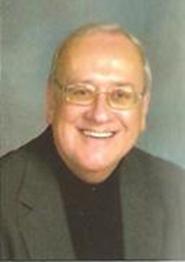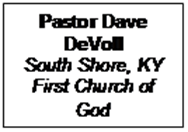|
|
|
THEMATIC INTRODUCTION
Truth Matters--But What IS the Truth?
Postmodernism rejects two principles called "correspondence theory of truth" and "the referential theory of language." “Correspondence” simply means that a statement is true if is factual--if it corresponds with the reality it describes. “Reference theory of language” simply means language refers to something that is real in the mind of the person who is speaking or writing.[1] Postmodernism "de-constructs" language--that is why we have so much confusion today about marriage, for example. Many postmoderns want to redefine it to mean whatever people who want to be regarded as "married" want it to mean: two men, two women, one man and several women, one woman and several men, or any other grouping of people. Others think we need to redefine family to mean any grouping of people living together. Some have redefined "spirituality" to mean any esthetically or emotionally pleasing experience--so we see a reversion in evangelical churches to medieval forms of worship using incense, candles, bells, and other impressive forms that please the senses, as well as a movement back to the "holy days" of the medieval church. Politically, postmoderns refer to our United States Constitution as a "living document" that changes its meaning with the changing times--and they apply the same reasoning to the Biblical text, completely misusing and misunderstanding the Hebrew writer's reference to the Word of God as being "quick and powerful," or alive and powerful. They think it changes its meaning according to the times!
These are some of the reasons I am very uncomfortable with people who tell me that the Church of God Reformation Movement has much in common with postmodernism and its corollary, the "emerging church." Sometimes they think this is justified by our avoidance of creedal statements of faith. While we reject written creeds, however, we do have a definite set of core beliefs and values we understand to be “the truth.”
Church of God writer Dr. C. Milton Grannum recently made several excellent points in his article, "The Particularity of Jesus in a Word of Radical Diversity" speaks especially to the concept of Jesus as "the truth." He writes, "The Christian belief that God stepped down into human history and revealed himself through a particular man known as Jesus Christ, remains the radical idea on which Christianity stands. . . . This divine manifestation was the activity of God, who alone has the capacity to reveal himself to us. . . . Two thousand years ago, the apostle Paul noted that Jesus was the major stumbling block to both Jews and Greeks. . . . For many Christians, even preachers, personally identifying with Jesus as the Son of God and the only Savior of the world seems to be a weight that is becoming heavier to bear."[2]
David Kowalski, on the website “Apologetics Index,” speaks of "many evangelical shepherds, who have passed from a prophetic to a professional model of ministry who readily welcome wolves into God's flock if those wolves are decked out in the latest, trendiest garb."[3]
Religious leaders, trying so desperately to keep in step with the times, say, "Well, the truth of Christianity may be different than the truth of Judaism or Buddhism or Islam or any of the other great religions of the world, but they all share the same core of truth." Jesus, however, said, "I came to testify to the truth," implying that there is only one truth.
We tell the world that "truth matters," but we often leave them wondering what we mean by "truth." Our pioneers didn't make that mistake. They boldly proclaimed not just "truth," but "the truth." In "The Reformation Glory" we sing, "I'm standing in the truth today." We sing, "Church of the living God, The pillar of the truth." One of the earliest song books published in Anderson is titled Truth in Song. They spoke of "the present truth," and they testified of "taking a stand for the truth," and they meant more than a set of doctrinal propositions--although that was included in it!
Jesus gave a twofold definition of truth. In John 14:6 He said, "I am the way and the truth and the life." In His prayer to the Father in John 17:17 He said, "Sanctify them by [or in] the truth; your word is truth." There are those who cry, "Jesus, yes! The church, no!" as though these were contrary and irreconcilable. Those who say they admire Jesus, but reject the church that produced the Scriptures fail to remember that all we know of Jesus is what the Word of God tells us.
As the Reformation Movement of the Church of God we are committed to the truth as it is in Jesus and to the truth as it is in the written Word. We believe this is a position fully defensible in our "postmodern" world--and we do not have to deconstruct or reconstruct the text of the Bible to fit the new arguments of postmodernism": they are neither new nor postmodern, but have been around for centuries!
When I was a child we used to sing with great enthusiasm a hymn C.W. Naylor wrote in 1923. It is called "The Reformation Glory," one verse of which reads
When the voice from heaven sounded warning all to flee From the darksome courts of Babel back to Zion free, Glad my heart to hear the message and I hastened to obey And I'm standing in the truth today!
I still sing this song today, and I know what I mean by "the truth"--it is "the truth as it is in Jesus.
[1] Postmodernism and the Emerging Church Movement, from the website "Apologetics Index" [2] C. Milton Grannum, Communion (Anderson, IN: Church of God Ministries, May/June 2012) 20. [3] “An Appropriate Response to the Emerging Church Movement.”
Articles for TRUTH MATTERS should be sent to both editors for consideration for publication. Send them to the following email addresses: davedevoll@yahoo.com and skypilotwo@aol.com The editors reserve the right to edit for form and/or to refuse to publish any articles submitted.
|


|
When Jesus told Pilate that He had come to "testify to the truth," Pilate asked, "Well, just what is truth?" This reminds me of a certain preached a number of years ago in Ohio who preached a sermon he called, "Sin Is Still Sin, But What is Sin?" He then proceeded to remind his listeners of many of the things we used to call sin--wearing wedding rings, drinking coffee and tea, going to the movies, using musical instruments in our worship, using cosmetics and medicine. We could all recite the litany, I guess. But he never did get around to answering the question, "What is sin?" So the congregation went away knowing what sin is not, but scratching their heads as to what it is.
Is it possible that we have done the same thing with the concept of the truth? Jesus made a subtle distinction that I think we sometimes miss. He did not say, "I came to testify to truth," but that He came to testify to "the" truth. To often we pay lip service to the idea of truth, but today's postmodern philosophers are quick to say, “Your truth may not be the same as my truth, but they're both truth." |